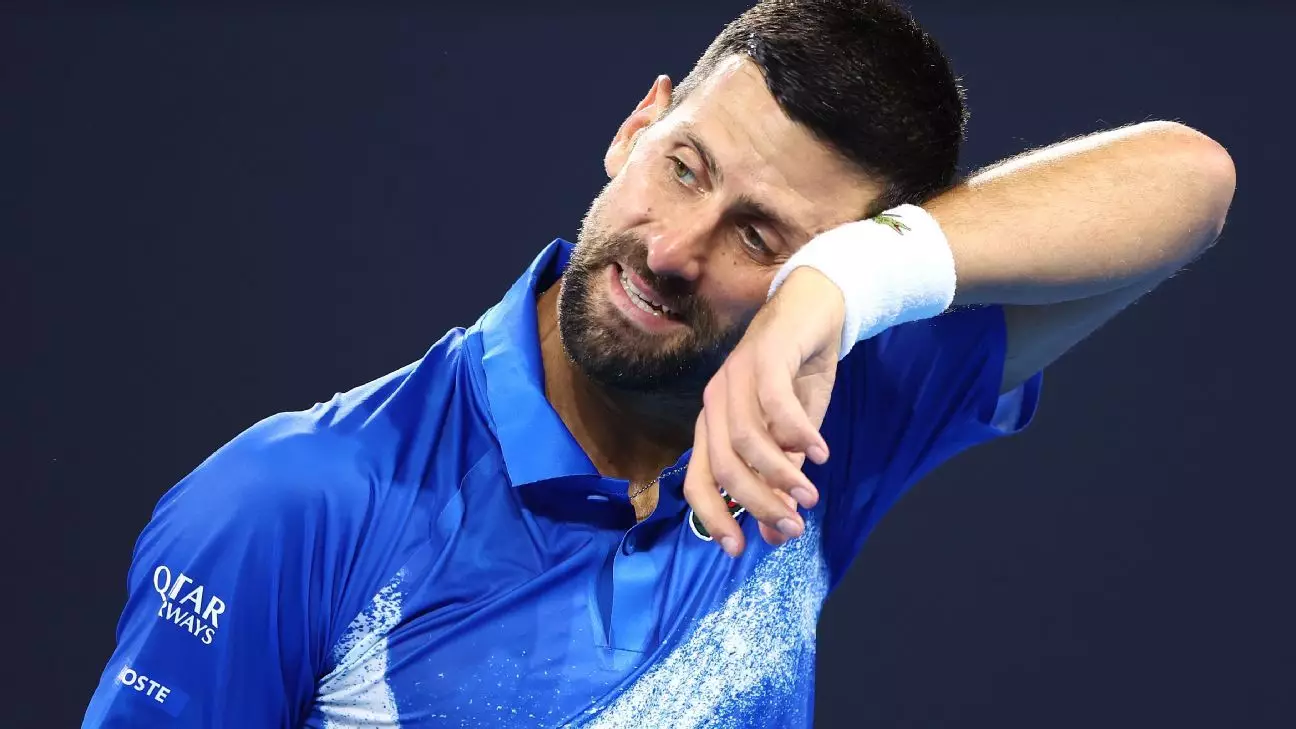Novak Djokovic’s connection with Melbourne has transformed from one of triumph to a complex tapestry woven with trauma and resilience. The Serb, who holds the record for the most men’s singles titles at the Australian Open, has recently opened up about his emotional struggles upon returning to a city that has a history of both glory and hardship for him. His deportation from Australia in early 2022 was sparked by his refusal to comply with COVID-19 vaccination mandates, marking a unprecedented chapter in the annals of sports—a chapter that colors his emotions each time he steps foot in the country that once embraced him as a champion.
Djokovic has described feeling “trauma” during his arrivals in Australia, particularly when going through passport control. This emotional burden isn’t just a fleeting sentiment; it reflects deep psychological scars from an infamous five-day ordeal where he was detained in a hotel while battling a legal storm that ultimately stripped him of the opportunity to compete in the Grand Slam event. Despite winning the tournament a year later, it is evident that the shadow of his prior experience lingers. The tension and uncertainty he feels at immigration checkpoints reveal the long-lasting impact of a moment that shook his professional identity.
The contradiction between his successes on the court and the emotional scars from the bureaucratic melee echo a broader narrative—a narrative of athletes being at the mercy of external political and social forces. Djokovic’s poignant reflections convey the difficult reality faced by public figures who become embroiled in issues beyond their control. It touches upon the psychological implications of elite competition, where not only physical stamina but mental resilience is constantly tested.
Interestingly, Djokovic’s insights illustrate a transformative attitude towards his past experiences. While he acknowledges the unease sparked by his tumultuous history, he also reveals a remarkable capacity for forgiveness. His decision to not hold a grudge against Australia showcases an emotional maturity that complements his athletic prowess. “I came right away the year after and I won,” he stated, indicating a triumph that transcends titles and trophies.
Such sentiments underline the complexities of the human experience, especially for those in the public eye. Djokovic’s victory amid adversity stands as a testament to resilience, but it also serves to humanize an athlete often seen as invincible on the court.
As the Australian Open approaches, scheduled to commence on January 12, Djokovic remains a formidable contender. His exemplary record at the tournament—a staggering ten titles—demonstrates not only his skill but his tenacity in facing adversities. Fans and analysts alike will be keenly watching how he navigates this new chapter in his relationship with Melbourne.
Ultimately, the dichotomy between the glory of Djokovic’s past achievements and the trauma of his recent experiences is emblematic of the broader struggles athletes face. As he continues to reclaim his place on the global tennis stage, Djokovic embodies the essence of resilience—transforming hardship into motivation, and forging ahead with an unwavering spirit.

